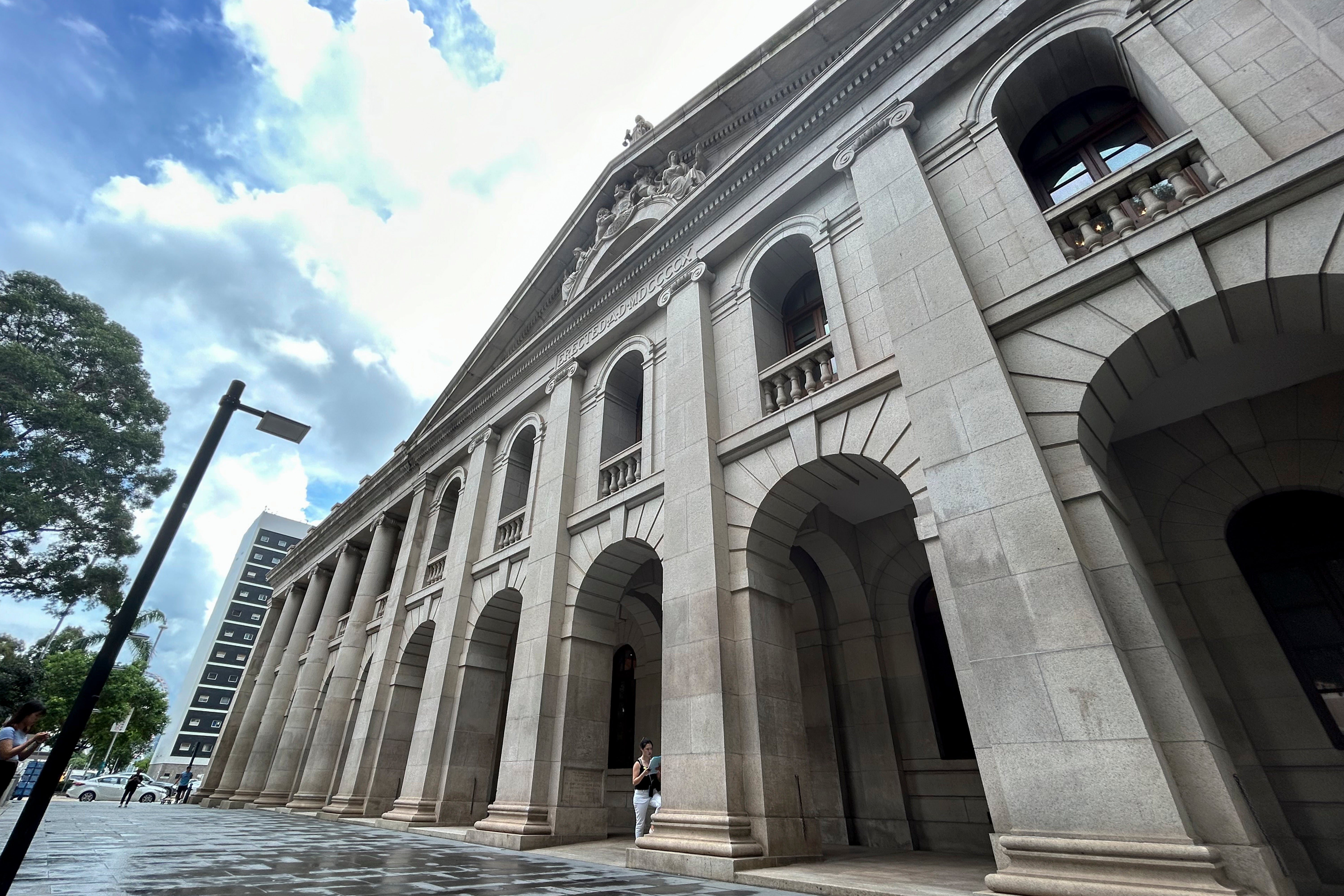A jailed Hong Kong student loses bid to reduce sentence over inciting secession in landmark ruling
A jailed university student in Hong Kong has lost his bid to reduce his five-year sentence over inciting secession

Your support helps us to tell the story
From reproductive rights to climate change to Big Tech, The Independent is on the ground when the story is developing. Whether it's investigating the financials of Elon Musk's pro-Trump PAC or producing our latest documentary, 'The A Word', which shines a light on the American women fighting for reproductive rights, we know how important it is to parse out the facts from the messaging.
At such a critical moment in US history, we need reporters on the ground. Your donation allows us to keep sending journalists to speak to both sides of the story.
The Independent is trusted by Americans across the entire political spectrum. And unlike many other quality news outlets, we choose not to lock Americans out of our reporting and analysis with paywalls. We believe quality journalism should be available to everyone, paid for by those who can afford it.
Your support makes all the difference.A jailed university student in Hong Kong lost his bid to reduce his five-year sentence for inciting secession in a landmark ruling by the city's top court Tuesday that will have a far-reaching impact on other cases brought under a Beijing-imposed national security law.
Lui Sai-yu pleaded guilty to breaching the sweeping security law in April 2022 and admitted that content on a Telegram channel he administered incited others to separate Hong Kong from China or alter the legal status of the city unlawfully.
But his timely guilty plea did not get him a one-third reduction in the length of his imprisonment — like in many other cases under the city's common law system — because the security law imposed minimum jail terms for serious offences.
Lui is one of the some 260 people who were arrested under the security law as Beijing tried to crush dissidents following the massive protests in 2019. The ruling on his appeal is expected to set the bar for sentencings in other national security cases, including those involving some of the city's most prominent democracy leaders who also pleaded guilty.
On Tuesday, judges at the top court unanimously dismissed the appeal and ruled that the minimum penalty of five years for those committing serious offences in relation to secession as stipulated by the security law is mandatory.
They said in a written judgment that the appellant had sought to argue the three conditions capable of triggering the mitigating benefits in Article 33 of the security law were not exhaustive.
One condition under that article is that offenders voluntarily stopped committing the offence or voluntarily and effectively forestalled its consequence during the process. The other two conditions are that offenders surrender themselves and give a truthful account of the crime; and that offenders report on offences committed by other persons with their accounts verified to be true or providing material information that assists in solving other case.
The judges ruled the three conditions specified in Article 33 are exhaustive and the article does not accommodate guilty pleas.
In sentencing him last year, a judge at a lower court originally planned to jail Lui for 44 months after giving him a one-third sentence reduction due to his guilty plea. But she amended the sentence after the prosecution argued the crime Lui committed was of serious nature and therefore the minimum penalty should be five years.
Lui appealed the decision but lost.
Lui was not a prominent pro-democracy activist in the city. He was the fourth person jailed under the sweeping security law. He was studying civil engineering when he was first arrested in September 2020.
According to a previous judgement, his Telegram channel carried messages containing the popular slogans often chanted by protesters in the 2019 movement that roiled the city for months.
The protests waned with the arrests and exiles of democracy activists, the COVID-19 pandemic and the security law.
Observers expect Tuesday's judgement to serve as a benchmark for other cases, including the future sentencing for 31 of the 47 activists who pleaded guilty to the subversion charges for their alleged involvement in an unofficial primary election in 2020. Those activists included former student leader Joshua Wong.
Critics say the freedoms promised to the former British colony when it returned to Chinese rule in 1997 have greatly declined after the enactment of the law. But Hong Kong government praised it for bringing back stability to the city.